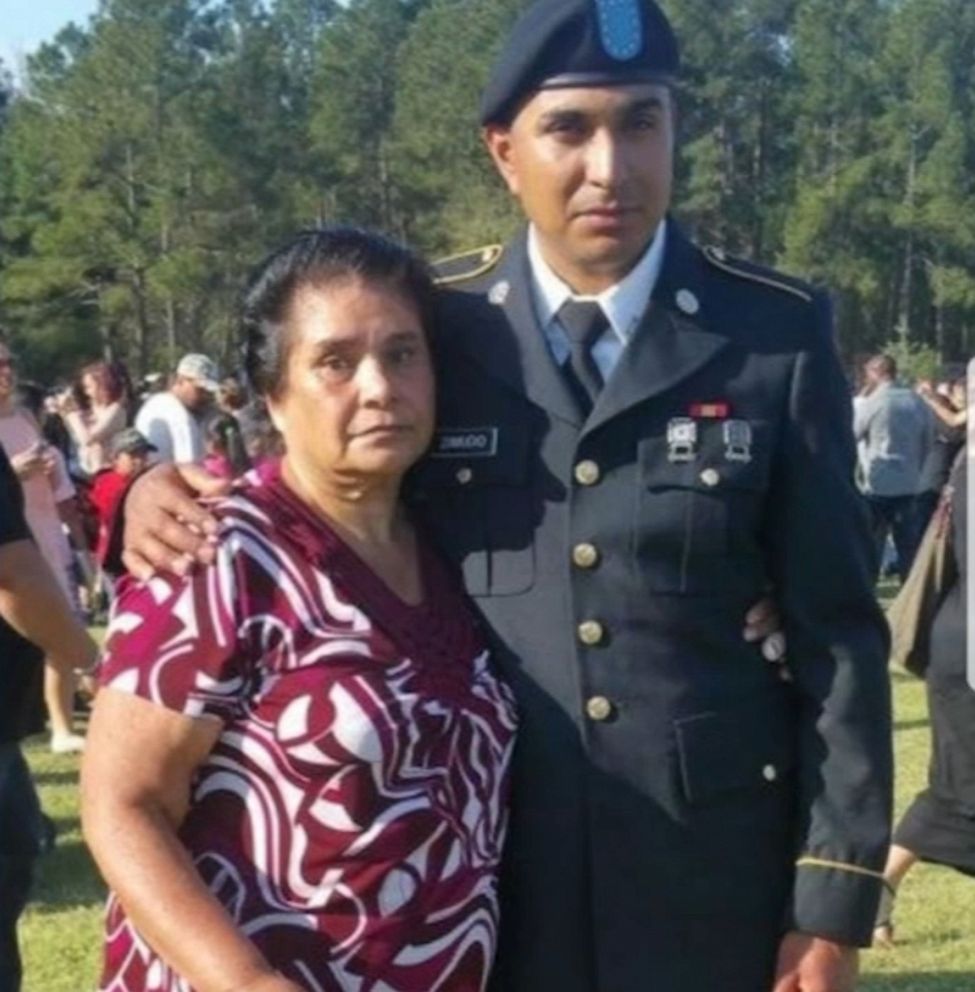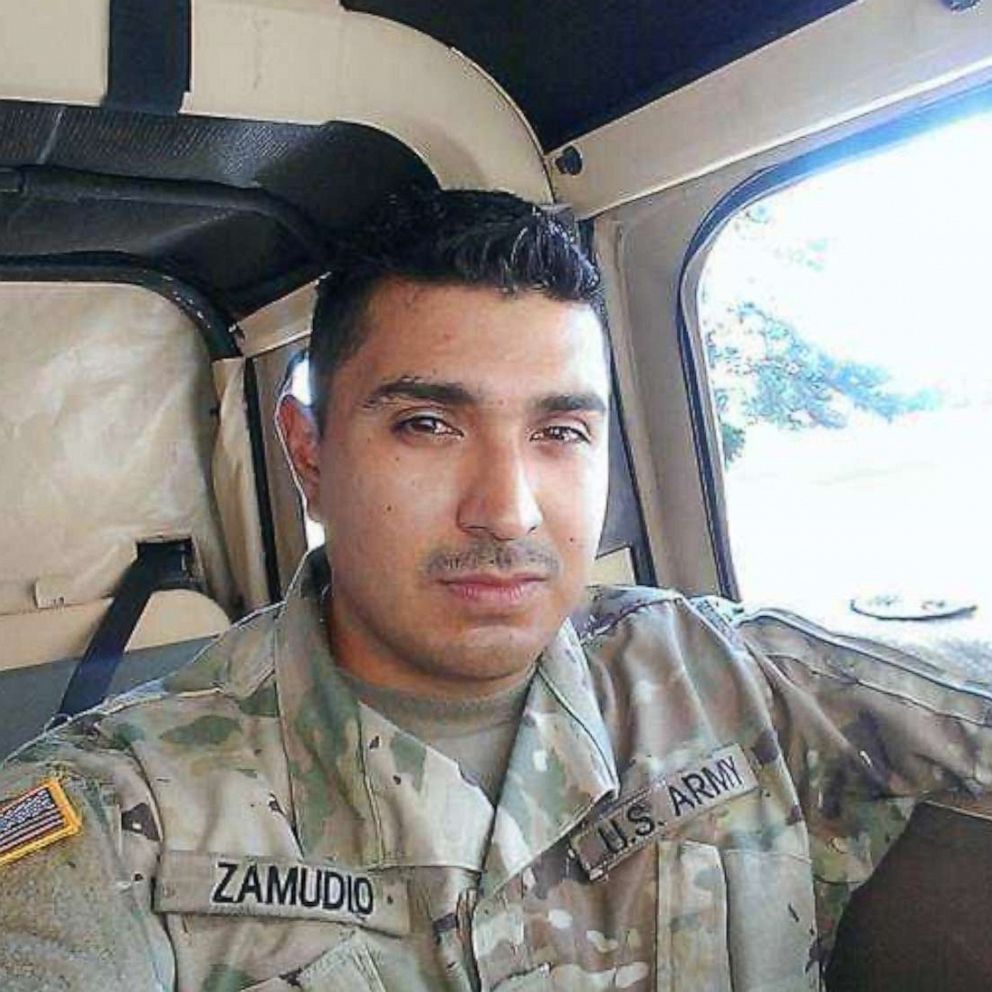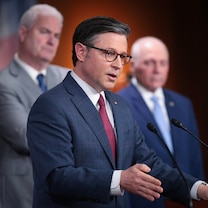The toll of coronavirus: 100,000 and counting
Perhaps nothing has killed so many, this quickly, in more than half a century.
100,000. But this is not about numbers.
This is about us.
This is about incalculable loss. About lives snuffed out too soon. Something different, awful, is in our midst, doing unspeakable acts.
Coronavirus. COVID-19. On Friday, it killed U.S. Army reservist Sgt. Simon Zamudio, only 34, a father so full of life.
Zamudio had just been promoted to sergeant in April, according to stripes.com. Unrelenting, on Monday, the coronavirus killed his mother, Gloria Zamudio.
So much grief for one family.

We have lost so many. They will never be forgotten. But losing this many people in a singular slow-moving, cataclysmic event unfolding daily is hard, painful.
No, it's not a bad flu. One respected study suggests it is at least 10 times worse.
In the next couple weeks, the virus will have killed more Americans than died in World War I. It has already killed 40,000 more Americans than died in the Vietnam War -- and has proven to be 33 times more deadly than the 9/11 attacks. As a singular entity in a concentrated period of time, perhaps nothing has killed this many people, this quickly, in more than half a century.
"For many of us, there really is no comparison. You'd have to go back to the Vietnam War, which started 20 years before I was born," said Assistant Professor Samuel V. Scarpino, Ph.D., of Northeastern University's Network Science Institute. "There were about 50,000 deaths in battle during Vietnam, which is a war that lasted almost 10 years. In only a few months we've lost twice as many to COVID-19. Almost certainly this year COVID-19 will be the third-leading cause of death, behind heart disease and all cancers combined."
Even as we reach the grim milestone of 100,000 deaths, experts say that it's likely an underestimate because many people are dying at home and in hospitals without ever receiving a formal COVID-19 diagnosis.
"These are, of course, only the confirmed deaths," Scarpino said. "I suspect we'll learn over the coming months and years that our current estimate of 100,000 is off by at least a factor of two."
One study suggested that during week 15 of the pandemic, a total of 70,000 people died in the U.S. -- a stunning 20,000 more than died in a typical week during the last five years. In other words, take what we normally see in death from heart disease, cancer, motor vehicle accidents, drownings, murder and drug overdoses, and layer in nearly a third more deaths. It's even more stunning when you focus on hotspots; at one point, New York City had a 500% spike in the number of deaths the city would normally see.
And no, this virus is not primarily killing people who are already at death's door. Sadly, say researchers, people with COVID-19 are dying 10 years earlier than they otherwise would.
Gone too soon. Doesn't seem like a cliche here. And still the phrase doesn't capture what we are experiencing. Gone too soon, times 100,000 and counting.
Many Americans -- even as they struggle to fully understand the enormity of COVID-19's impact on their health and financial future -- inherently know they are in the midst of something different, historic. Something horrible that has seeped its way into every corner of their lives. And they are right.

It has already altered so many things about how we live. How we work. How we play. How we shop. Even how we grieve.
Listen closely. Can you hear that song from a funeral happening somewhere in the country? Insert the spiritual song from whatever faith you believe: Christian. Jewish. Muslim. Or insert silence, if you believe in none.
Listen closely. Can you hear that eulogy that is coming to a close? Imagine seeing those 10 family members having to stand more than six feet apart if they are not from the same household. Unable to embrace. Unable to have their communities grieve with them, to comfort them. One can imagine, tears flowing, as a family somehow tries to remember happier times and not dwell on the fact that they could not even visit their loved ones in the final days and hours.
As a country, collectively, we have also been robbed of the opportunity to mourn, to memorialize those who have lost their lives, and to heal together. Perhaps now, as we mark 100,000 deaths in a few short months, we can take stock of our loss, and find a path forward as a nation.
Listen closely -- and perhaps you can hear rising from the pain and loss, whispers growing louder about how wonderful this person lost to COVID-19 truly was.
We collectively did not know Simon Zamudio or his mother. But we can imagine that they were good people, who, like most of us, overcame obstacles, pushed through challenges and became the people now sorely missed. Lives like this could not have been lived without hope.
Hope. We are trusting the Zamudios left some of that behind for their family to keep on keeping on.
100,000. But this is not about numbers.
This is about us.
All of us.
This report was featured in the Thursday, May 28, 2020, episode of “Start Here,” ABC News’ daily news podcast.
"Start Here" offers a straightforward look at the day's top stories in 20 minutes. Listen for free every weekday on Apple Podcasts, Google Podcasts, Spotify, the ABC News app or wherever you get your podcasts.
What to know about the coronavirus:
- How it started and how to protect yourself: Coronavirus explained
- What to do if you have symptoms: Coronavirus symptoms
- Tracking the spread in the U.S. and worldwide: Coronavirus map
Tune into ABC at 1 p.m. ET and ABC News Live at 4 p.m. ET every weekday for special coverage of the novel coronavirus with the full ABC News team, including the latest news, context and analysis.




